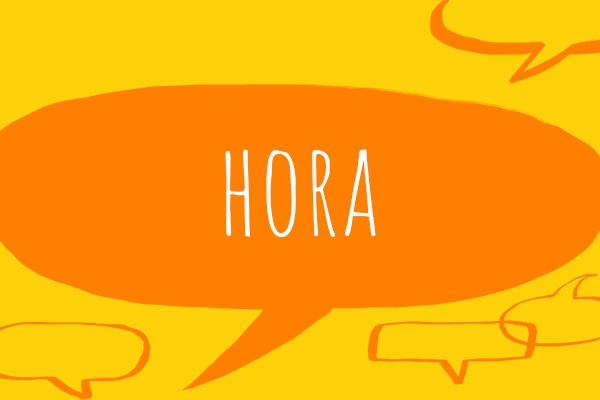This week’s Spanish word of the week is hora.
Hora is a noun that means time, hour; period; appointment. To hear how hora is pronounced, you can click the icon below.
You’ll already know hora as time from the basic question ¿Qué hora es? What’s the time?, or as people often ask in Mexico: ¿Me da su hora?
It has other uses in this meaning:
¿A qué hora llegas? What time are you arriving?
Nunca llega a la hora. He never arrives on time.
Ha llegado la hora de descansar. The time has come to rest.
And of course, another basic meaning is hour:
Me ha llevado horas hacerlo. It took me hours to do it.
El vuelo dura dos horas y media. The flight lasts two and a half hours.
Hora also has other meanings relating to very specific periods of time at school or college:
Después de física tenemos una hora libre. After Physics we have a free period.
You also use hora when you need to make an appointment with somebody such as a doctor, dentist, or other medical or health professional:
Tengo hora para el dentista. I’ve got an appointment with the dentist.
¿Puede darme hora con la doctora Arnedo el martes que viene? Can you make an appointment for me with Doctor Arnedo for next Tuesday?
Come back next week to learn a new word!




collins_dictionary_official
The home of living language. #wotd #wordlovers #collinsdictionary
Read our word of the week definitions and blog posts: